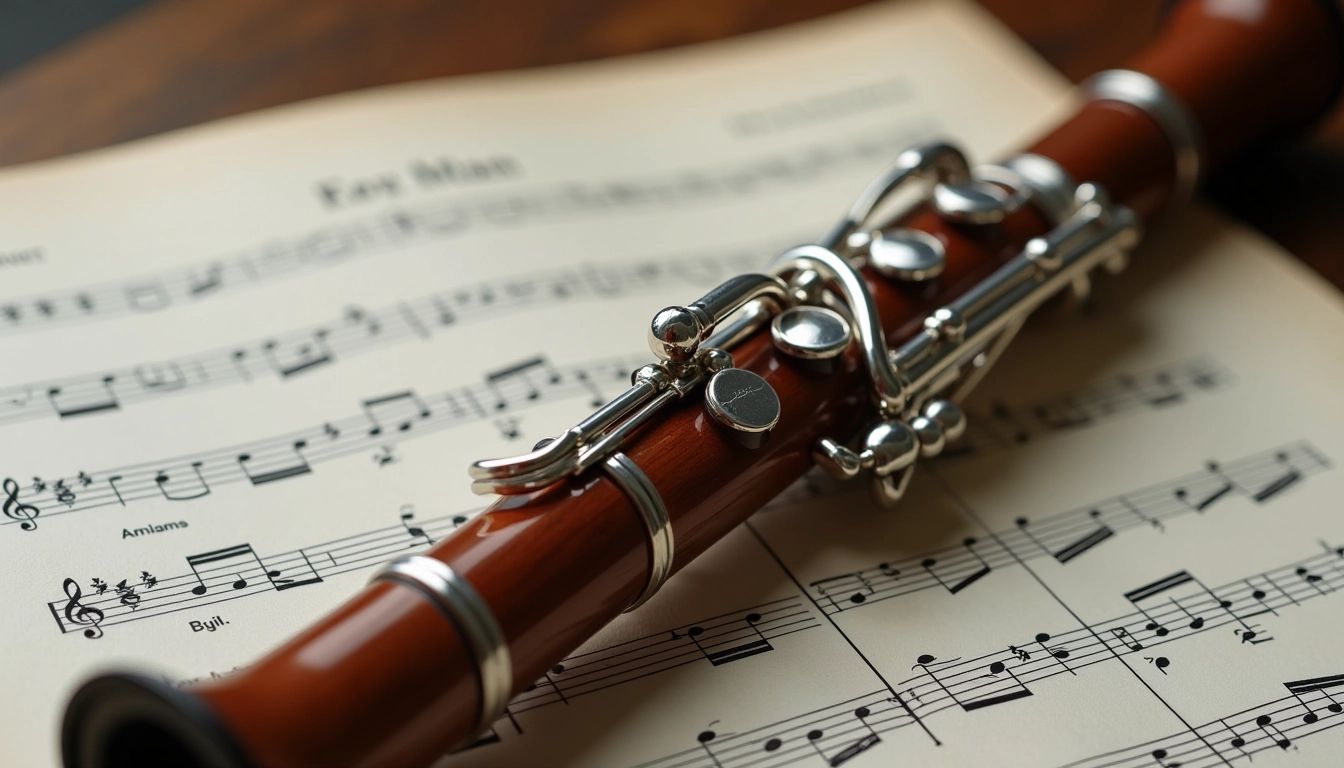Let’s explore the significance of National Clarinet Day, a celebration that resonates with music lovers and instrumentalists alike. On November 16, 2024, the world will once again pay homage to this versatile woodwind instrument that has captivated audiences for centuries. Discover the impact of the clarinet on musical genres ranging from classical to jazz, and uncover the rich history behind this beloved instrument. As we delve into the nuances of National Clarinet Day, prepare to be inspired by the melodies, stories, and passion that surround this remarkable musical creation.
The Origins of National Clarinet Day
While the exact origins of National Clarinet Day remain shrouded in mystery, its celebration on November 16 has become an annual tradition for musicians and enthusiasts worldwide. The day serves as a recognition of the clarinet’s significant cultural contribution, which dates back to the 18th century. Much like how World Civil Defence Day honors those who protect our communities, National Clarinet Day pays tribute to an instrument that has defended and enriched our musical heritage for generations.
A Journey Through Time: The Evolution of the Clarinet
The modern clarinet we know today evolved from a simple single-reed instrument called the chalumeau. In the early 18th century, German instrument maker Johann Christoph Denner and his son Jacob Denner revolutionized this primitive design. Their modifications, including the addition of a register key, gave birth to the clarinet as we know it. This evolution mirrors the way our understanding of music and culture has grown over time, much like how World Tourism Day celebrates the evolving ways we explore and appreciate different cultures.
The Clarinet’s Versatility: A Musical Chameleon
One of the most remarkable aspects of the clarinet is its incredible versatility. From the haunting melodies of classical compositions to the swinging rhythms of jazz, the clarinet adapts effortlessly to various musical landscapes. As Larry Combs, a renowned clarinetist, once said, “The clarinet is like a chameleon in the musical world. It can blend into any genre while still maintaining its unique voice.” This adaptability has made the clarinet a staple in orchestras, jazz ensembles, and even folk music traditions around the globe.
Celebrating National Clarinet Day: Events and Activities
National Clarinet Day is marked by a variety of events that bring together musicians, students, and music lovers. These celebrations often include:
- Masterclasses led by experienced clarinetists
- Concerts featuring clarinet music from various genres
- Lectures on clarinet history, maintenance, and performance techniques
- Interactive workshops for aspiring musicians
These events not only showcase the instrument’s capabilities but also foster a sense of community among enthusiasts, much like how World Animal Day brings together animal lovers to celebrate and protect our furry friends.
The Educational Impact of National Clarinet Day
National Clarinet Day plays a crucial role in music education. Ran Kampel, an assistant professor of clarinet at Baylor University, emphasizes, “Events like Clarinet Day are invaluable for students. They provide unique opportunities to learn from professionals, gain performance experience, and connect with peers who share their passion.” These educational experiences can be transformative for young musicians, inspiring them to pursue their musical dreams and hone their skills.
The Clarinet’s Role in Cultural Expression
Throughout history, the clarinet has been a powerful tool for cultural expression. In klezmer music, it voices the joys and sorrows of Jewish traditions. In New Orleans jazz, it swings with the spirit of the city. The clarinet’s ability to convey emotion through music makes it a universal language, bridging cultural divides. This cultural significance is reminiscent of how World Food Day celebrates the diversity of global cuisines and their importance in different cultures.
The Health Benefits of Playing the Clarinet
While National Clarinet Day primarily focuses on musical appreciation, it’s worth noting the health benefits associated with playing this instrument. Regular practice can improve:
- Lung capacity and breath control
- Fine motor skills and hand-eye coordination
- Cognitive function and memory
- Stress reduction and emotional well-being
These benefits underscore the importance of music education and its positive impact on overall health, mirroring the holistic approach to well-being celebrated on International Women’s Day.
The Future of the Clarinet in a Digital Age
As we celebrate National Clarinet Day, it’s natural to consider the instrument’s future in our increasingly digital world. Despite the rise of electronic music, the clarinet continues to hold its ground. “The clarinet’s timeless appeal lies in its ability to convey human emotion in a way that electronic instruments simply can’t match,” notes a seasoned clarinetist. This enduring quality ensures that the clarinet will remain relevant for generations to come, adapting to new musical styles while retaining its classic charm.
How to Engage with National Clarinet Day
Whether you’re a seasoned musician or simply a music lover, there are many ways to participate in National Clarinet Day:
“Music gives a soul to the universe, wings to the mind, flight to the imagination, and life to everything.” – Plato
Inspired by these words, consider the following ways to engage:
- Attend a local clarinet concert or recital
- Listen to a playlist featuring diverse clarinet music
- Share your favorite clarinet performances on social media using #ClarinetDay
- If you play, organize a small performance for friends and family
By participating, you not only honor the instrument but also contribute to the vibrant community of music enthusiasts worldwide.
Conclusion: The Enduring Legacy of the Clarinet
As we celebrate National Clarinet Day, we honor not just an instrument, but a legacy of musical expression that has touched countless lives. The clarinet, with its rich tones and expressive capabilities, continues to inspire, educate, and unite people across cultures and generations. Like a bridge connecting different musical worlds, the clarinet reminds us of the universal language of music and its power to move the human spirit. As we look forward to future celebrations, let’s cherish the melodies that have shaped our past and continue to enrich our present, ensuring that the clarinet’s voice resonates clearly for generations to come.
